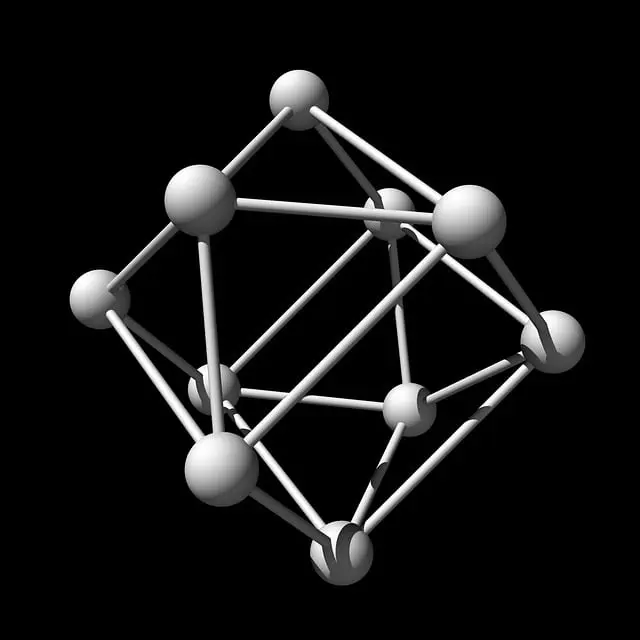Delta-8 THC, a synthetic cannabinoid derived from CBD, offers a milder high compared to traditional cannabis strains like Hulu the Strain. Through intricate synthesis and extraction, it provides a unique experience with heightened sensory perception, relaxation, and mental clarity without intense anxiety or paranoia. While its legal status varies globally, Delta-8 is gaining attention for potential therapeutic benefits, such as pain relief and appetite stimulation, making it an appealing alternative in the cannabis market.
“Delta-8 THC, a synthetic compound akin to cannabis, has garnered recent attention for its psychoactive effects. This emerging substance, often referred to as ‘Hulu the Strain,’ offers a unique blend of properties distinct from its more famous counterpart, CBD. Our article explores the chemical intricacies of Delta-8, its synthesis, and its impact on users. We delve into the legal landscape, safety concerns, and the potential future of this intriguing compound in cannabis research, providing an in-depth guide to understanding Hulu the Strain.”
- Understanding Delta-8 THC: Unlocking the Chemical Structure
- The Synthesis of Delta-8: How Scientists Create Hulu the Strain
- Psychoactive Properties: What Makes Delta-8 Influence the Mind?
- Effects on Users: Exploring the High and Its Potential Benefits
- Legal Status and Safety Concerns: Navigating the Regulatory Landscape
- Future Prospects: The Evolving Role of Delta-8 in Cannabis Research
Understanding Delta-8 THC: Unlocking the Chemical Structure
Delta-8 THC, a relatively new compound in the cannabis world, has gained significant attention due to its unique chemical structure and psychoactive properties. It’s important to understand that Delta-8 is not exactly similar to its more popular counterpart, Delta-9 THC, but shares some striking similarities. Both compounds are found naturally in the cannabis plant, albeit in minimal amounts. However, Delta-8 THC undergoes a synthetic transformation, where it’s converted from CBD (Cannabidiol) through a series of chemical processes.
This conversion process allows for the creation of a compound that offers a milder high compared to traditional marijuana strains known as “hulu the strain.” While Delta-9 THC is responsible for the intoxicating effects and psychological changes associated with cannabis, Delta-8 provides a more subtle experience. The chemical structure of Delta-8 differs slightly from Delta-9, specifically at one atomic level, which leads to distinct pharmacological actions and potentially reduced side effects, making it an appealing option for those seeking recreational or therapeutic benefits without the overwhelming intensity often linked to Delta-9 THC.
The Synthesis of Delta-8: How Scientists Create Hulu the Strain
Delta-8 THC, a synthetic compound similar to cannabis, has gained popularity for its psychoactive effects. But how is it made? Scientists create this potent substance through a complex synthesis process. One popular method involves converting CBD (cannabidiol) into Delta-8 using specific chemical reactions and advanced extraction techniques. This transformation results in the creation of Hulu the Strain, a synthetic cannabis-like product.
The synthesis of Delta-8 THC is a carefully controlled process, ensuring purity and potency. Researchers and manufacturers use cutting-edge technology to isolate and refine the compound, making it safe for consumption. Hulu the Strain, with its unique chemical makeup, offers users a different experience compared to traditional cannabis strains, providing an alternative option in the legal cannabis market.
Psychoactive Properties: What Makes Delta-8 Influence the Mind?
Delta-8 THC, a synthetic compound derived from cannabis, has gained popularity for its psychoactive effects, often described as a milder alternative to Delta-9 THC. Unlike traditional cannabis strains like Hulu the strain (known for its potent Delta-9 content), Delta-8 offers a unique experience by binding to the same receptors in the brain but with different outcomes. This interaction results in heightened sensory perception, increased appetite, and a general sense of relaxation without inducing anxiety or paranoia, which are common side effects associated with higher doses of Delta-9 THC.
The mind-altering properties of Delta-8 are attributed to its ability to affect mood and cognitive functions. It can induce feelings of euphoria, enhance creativity, and alter time perception. Some users report experiencing a clear-headed high, allowing for increased focus and mental clarity, making it appealing for those seeking a more controllable and less overwhelming psychoactive experience compared to traditional cannabis strains.
Effects on Users: Exploring the High and Its Potential Benefits
Delta 8 THC, a synthetic compound derived from cannabis, has garnered significant attention for its psychoactive properties akin to traditional “hulu the strain.” Users report experiencing heightened senses, increased relaxation, and a pleasant mental buzz, similar to that of a light cannabis high. This effects profile suggests potential therapeutic applications, including stress relief, improved sleep, and reduced anxiety.
The hulu-like high is attributed to Delta 8’s interaction with the endocannabinoid system in the brain. Unlike its more well-known cousin, Delta 9 THC, Delta 8 has a lower potency, leading to milder cognitive impairment and less paranoia or anxiety for many users. This makes it an appealing option for individuals seeking a recreational experience without the intense side effects sometimes associated with traditional cannabis use.
Legal Status and Safety Concerns: Navigating the Regulatory Landscape
The legal status of Delta-8 THC (Hulu the strain) is a complex and evolving landscape. Unlike its more well-known counterpart, Delta-9 THC, Delta-8 is relatively new to the scene and has not been subjected to the same level of regulation. As a result, the legal standing of this synthetic cannabis compound varies significantly across different regions. In some areas, it may be explicitly illegal, while in others, it exists in a regulatory gray area, with varying degrees of restrictions.
Safety is a paramount concern when discussing any psychoactive substance, including Delta-8 THC. Due to its relative novelty and lack of extensive research, there are still many unknowns surrounding its effects on human health. Users may experience side effects similar to those associated with cannabis, such as heightened senses or altered perception. However, the potential for more severe consequences, especially in terms of long-term health impacts, remains unclear. As such, navigating the market requires vigilance and an understanding of local laws to ensure both legal compliance and personal safety.
Future Prospects: The Evolving Role of Delta-8 in Cannabis Research
As research into cannabis and its various compounds continues to expand, Delta-8 THC (Δ-8-tetrahydrocannabinol) has emerged as an intriguing area of interest. This synthetic cannabinoid, often referred to as “Hulu the strain,” shares some structural similarities with the more well-known Delta-9 THC but offers distinct psychoactive effects. Future prospects for Δ-8 look promising, especially in the realm of cannabis research and medical applications. Scientists are exploring its potential therapeutic benefits, such as pain relief, anxiety reduction, and appetite stimulation, without the intense cognitive impacts associated with Delta-9.
The evolving role of Delta-8 could lead to innovative treatments and a better understanding of the endocannabinoid system’s complex mechanisms. Its unique properties might also open doors for developing new cannabis-derived products tailored to specific medical needs. As more studies uncover Δ-8’s effects, the compound’s significance in both recreational and medicinal cannabis use is bound to grow, shaping the future of the industry and offering exciting possibilities for those seeking alternative forms of relief and enjoyment.
Delta-8 THC, a synthetic compound derived from cannabis, has gained attention for its psychoactive properties reminiscent of Hulu the strain. This article has explored the chemical structure of Delta-8, its synthesis, and its unique mental effects. While offering potential benefits, the legal status and safety concerns surrounding Delta-8 necessitate further research and regulatory clarity. Looking ahead, the evolving role of Delta-8 in cannabis research promises to bring new insights into this fascinating compound, potentially reshaping the landscape of psychoactive substances.






